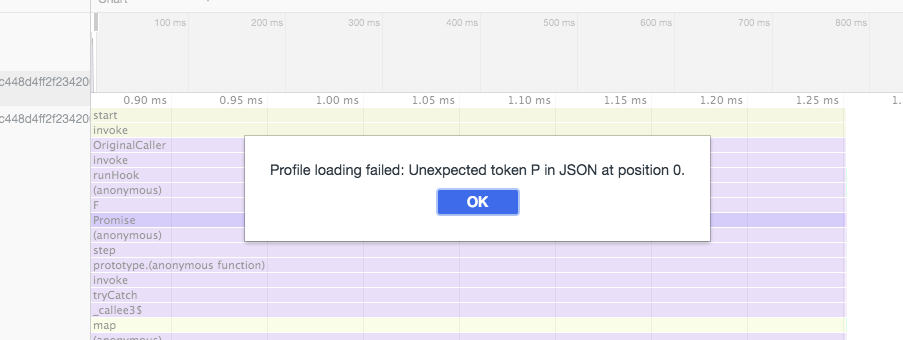IOpipe is a serverless DevOps platform for organizations building event-driven architectures in AWS Lambda. IOpipe captures crucial, high-fidelity metrics for each Lambda function invocation. This data powers a flexibile and robust development and operations experience with features including tracing, profiling, custom metrics, and low-latency alerts. Get started today to quickly and confidently gain superior observability, identify issues, and discover anomalies in your connected applications.
Note: this library is a lower-level implementation than the package you might likely be looking for. Enjoy pre-bundled plugins like tracing and event info with @iopipe/iopipe
Install using your package manager of choice,
npm install @iopipe/core
or
yarn add @iopipe/core
If you are using the Serverless Framework to deploy your lambdas, check out our serverless plugin.
Configure the library with your project token (register for access), and it will automatically monitor and collect metrics from your applications running on AWS Lambda.
Example:
const iopipeLib = require('@iopipe/core');
const iopipe = iopipeLib({ token: 'PROJECT_TOKEN' });
exports.handler = iopipe((event, context) => {
context.succeed('This is my serverless function!');
});You may add custom metrics to an invocation using context.iopipe.metric to add
either string or numerical values. Keys have a maximum length of 256 characters, and string values are limited
to 1024.
Example:
const iopipeLib = require('@iopipe/core');
const iopipe = iopipeLib({ token: 'PROJECT_TOKEN' });
exports.handler = iopipe((event, context) => {
context.iopipe.metric('key', 'some-value');
context.iopipe.metric('another-key', 42);
context.succeed('This is my serverless function!');
});You can label invocations using context.iopipe.label to label an invocation with a string value, with a limit of 128 characters.
Example:
const iopipeLib = require('@iopipe/core');
const iopipe = iopipeLib({ token: 'PROJECT_TOKEN' });
exports.handler = iopipe((event, context) => {
context.iopipe.label('something-important-happened');
context.succeed('This is my serverless function!');
});You can configure your iopipe setup through one or more different methods - that can be mixed, providing a config chain. The current methods are listed below, in order of precendence. The module instantiation object overrides all other config values (if values are provided).
- Module instantiation object
IOPIPE_*environment variables- An
.iopipercfile - An
iopipepackage.json entry - An
extendskey referencing a config package - Default values
If not supplied, the environment variable $IOPIPE_TOKEN will be used if present. Find your project token.
Debug mode will log all data sent to IOpipe servers to STDOUT. This is also a good way to evaluate the sort of data that IOpipe is receiving from your application. If not supplied, the environment variable $IOPIPE_DEBUG will be used if present.
const iopipe = require('@iopipe/core')({
token: 'PROJECT_TOKEN',
debug: true
});
exports.handler = iopipe((event, context, callback) => {
// Do things here. We'll log info to STDOUT.
});The number of milliseconds IOpipe will wait while sending a report before timing out. If not supplied, the environment variable $IOPIPE_NETWORK_TIMEOUT will be used if present.
const iopipe = require('@iopipe/core')({ token: 'PROJECT_TOKEN', networkTimeout: 30000})By default, IOpipe will capture timeouts by exiting your function 150ms early from the AWS configured timeout, to allow time for reporting. You can disable this feature by setting timeoutWindow to 0 in your configuration. If not supplied, the environment variable $IOPIPE_TIMEOUT_WINDOW will be used if present.
const iopipe = require('@iopipe/core')({ token: 'PROJECT_TOKEN', timeoutWindow: 0})Note that if you use the @iopipe/iopipe package, you get our recommended plugin set-up right away. Plugins can extend the functionality of IOpipe in ways that best work for you. Follow the guides for the plugins listed below for proper installation and usage on the @iopipe/core library:
Example:
const tracePlugin = require('@iopipe/trace');
const iopipe = require('@iopipe/core')({
token: 'PROJECT_TOKEN',
plugins: [tracePlugin()]
});
exports.handler = iopipe((event, context, callback) => {
// Run your fn here
});Conditionally enable/disable the agent. The environment variable $IOPIPE_ENABLED will also be checked.
Sets an alternative URL to use for the IOpipe collector. The environment variable $IOPIPE_COLLECTOR_URL will be used if present.
Not recommended for webpack/bundlers due to dynamic require.
You can configure iopipe via an .iopiperc RC file. An example of that is here. Config options are the same as the module instantiation object, except for plugins. Plugins should be an array containing mixed-type values. A plugin value can be a:
- String that is the name of the plugin
- Or an array with plugin name first, and plugin options second
{
"token": "wow_token",
"plugins": [
"@iopipe/trace",
["@iopipe/profiler", {"enabled": true}]
]
}IMPORTANT: You must install the plugins as dependencies for them to load properly in your environment.
Not recommended for webpack/bundlers due to dynamic require.
You can configure iopipe within a iopipe package.json entry. An example of that is here. Config options are the same as the module instantiation object, except for plugins. Plugins should be an array containing mixed-type values. A plugin value can be a:
- String that is the name of the plugin
- Or an array with plugin name first, and plugin options second
{
"name": "my-great-package",
"dependencies": {
"@iopipe/trace": "^0.2.0",
"@iopipe/profiler": "^0.1.0"
},
"iopipe": {
"token": "wow_token",
"plugins": [
"@iopipe/trace",
["@iopipe/profiler", {"enabled": true}]
]
}
}IMPORTANT: You must install the plugins as dependencies for them to load properly in your environment.
Not recommended for webpack/bundlers due to dynamic require.
You can configure iopipe within a package.json or rc file by referencing a extends config package. An example of that is here. Config options are the same as the module instantiation object, except for plugins. Plugins should be an array containing mixed-type values. A plugin value can be a:
- String that is the name of the plugin
- Or an array with plugin name first, and plugin options second
For an example of a config package, check out @iopipe/config.
IMPORTANT: You must install the config package and plugins as dependencies for them to load properly in your environment.
Apache 2.0



